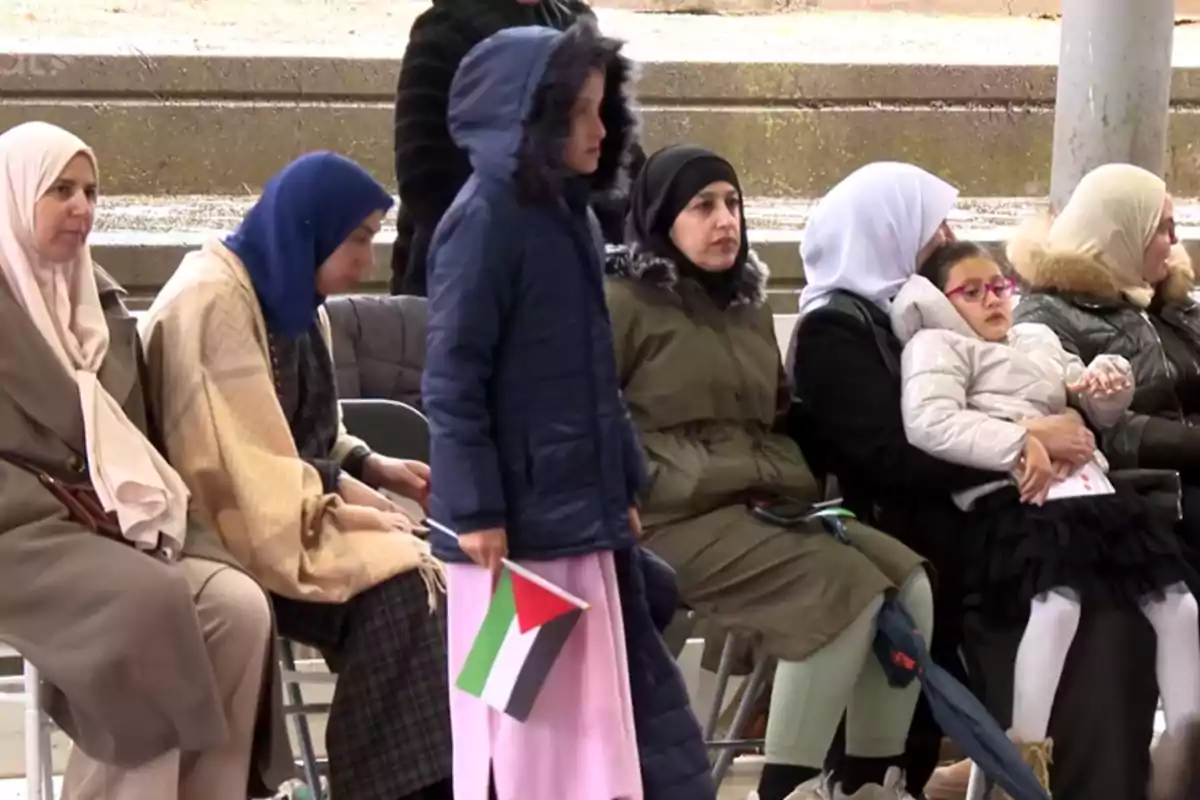
Junts's resounding fiasco with the Islamic veil boosts Aliança Catalana
Puigdemont's supporters can't find the position from which to compete with Sílvia Orriols's rise
In an attempt to regain ground against the advance of Aliança Catalana, Junts per Catalunya has undertaken a discursive shift that has caused controversy and mixed reactions. The party led by Carles Puigdemont has proposed banning the Islamic veil in schools and the burka and niqab in public spaces. This measure has been presented as a defense of gender equality and the rights of minors, but it has sparked skepticism both inside and outside the Catalan parliamentary spectrum.
The hardening of Junts's discourse occurs in an adverse electoral context. According to recent polling data, Aliança Catalana is attracting a significant portion of the more conservative pro-independence electorate, taking between seven and eight deputies from Junts in voting intention. This pressure has forced Junts to make decisions aimed at reinforcing its ideological profile without giving up a moderate image, a balance that so far doesn't seem to be yielding positive results.

"Welcome to the far right"
The most recent episode illustrating this back-and-forth occurred in the Parliament de Catalunya, where the leader of Aliança Catalana, Sílvia Orriols, harshly criticized Junts's change of stance. From the podium, Orriols ironically commented on the party's new line, recalling that they previously labeled those who questioned the use of the veil as racist and extremist.
In her view, the shift doesn't respond to a real ideological conviction but to the fear of losing parliamentary representation. "They had years to position themselves on this discriminatory and misogynistic element and never said anything," Orriols stated, concluding with sarcasm: "Welcome to the far right":
Junts replied immediately. Deputy David Saldoni accused Orriols of fostering hatred and compromising social cohesion in Catalonia. He defended the new proposal as a measure in favor of children's rights and female emancipation, without clarifying, however, why this initiative would be different from the one promoted by Aliança Catalana. This ambiguity has raised doubts about the party's internal coherence and reinforced the perception that it acts out of electoral necessity rather than clear principles:
We've hit Islam
The debate over the use of the veil is not new in Catalonia. As early as 2010, municipalities like Lleida began attempts to ban the burka in public spaces. However, the High Court of Justice of Catalonia suspended these restrictions for violating religious freedom. Since then, the issue has continued to generate friction, especially in educational settings, where the Govern has recommended avoiding the use of garments that cover the face as they interfere with communication and learning.

Meanwhile, Aliança Catalana has intensified its critical discourse against Islam, consolidating its presence among sectors that perceive contradictions between multiculturalism and feminism. Orriols has managed to capitalize on this discursive ground, organizing public events, such as a round table in Ripoll against the imposition of the veil, and linking her message to symbolic dates like the day against gender violence. This strategy has allowed her to position herself as a challenging voice against traditional progressivism and has given her greater media visibility.
The evolution of Junts's discourse and the pressure exerted by Aliança Catalana illustrate a growing competition for the identity electorate. The reaction of voters to these maneuvers will define the course of both parties in the Catalan political landscape. For now, Junts still hasn't found a clear formula to stop the expansion of a formation that has made clear and forceful discourse its main political asset.
More posts: